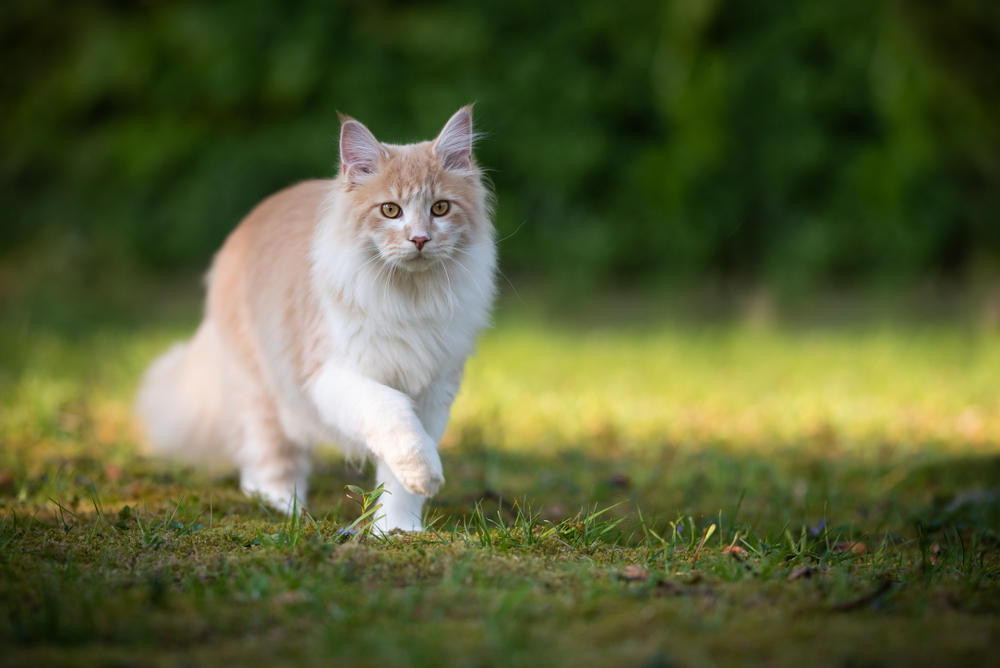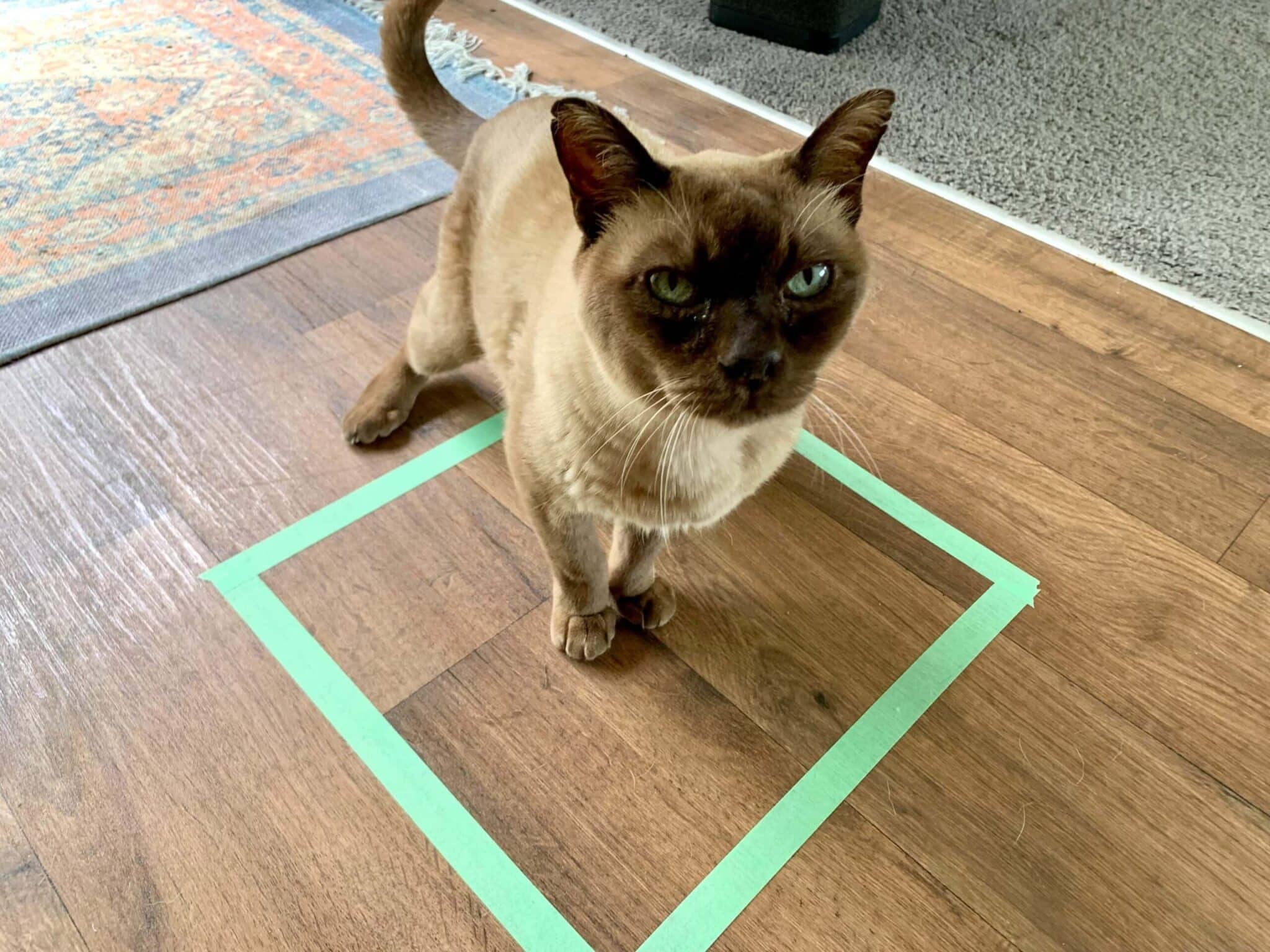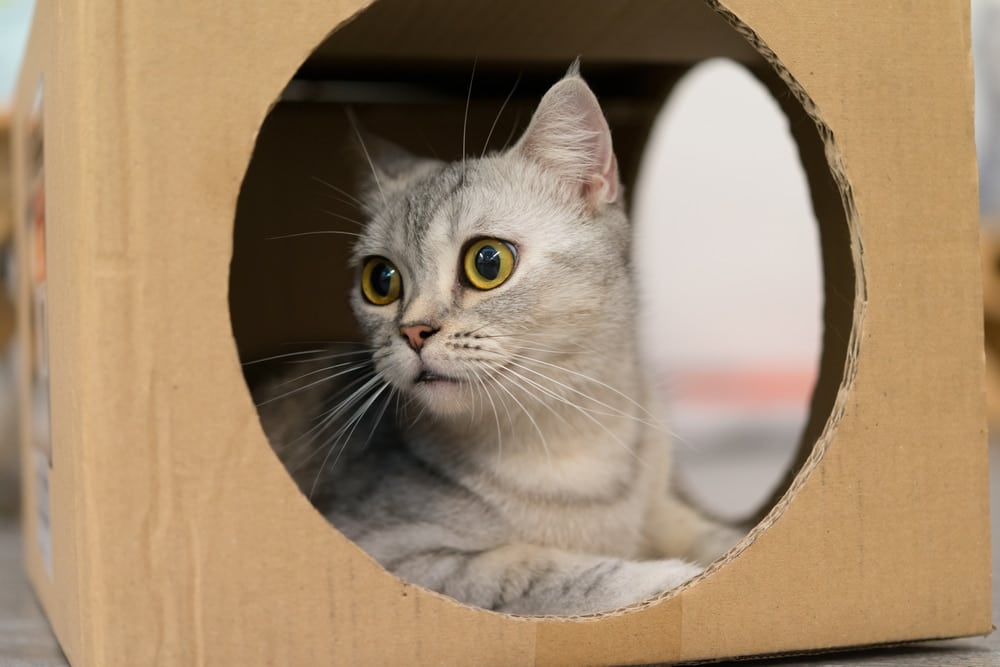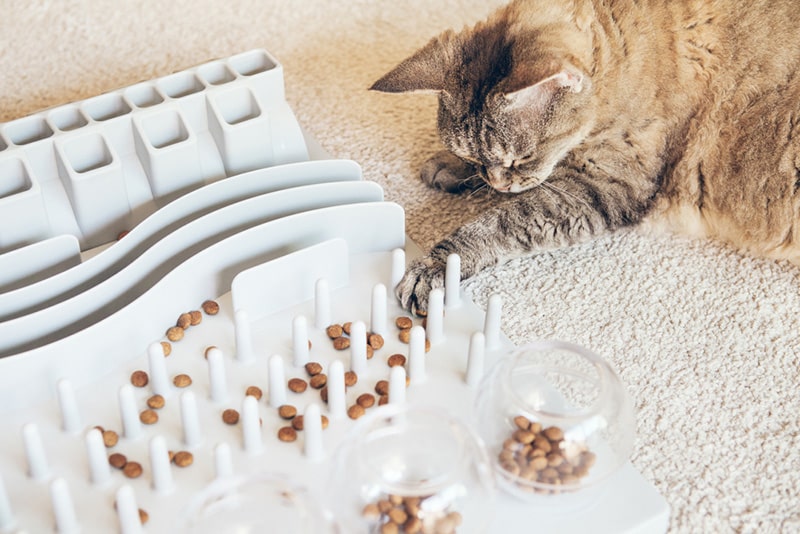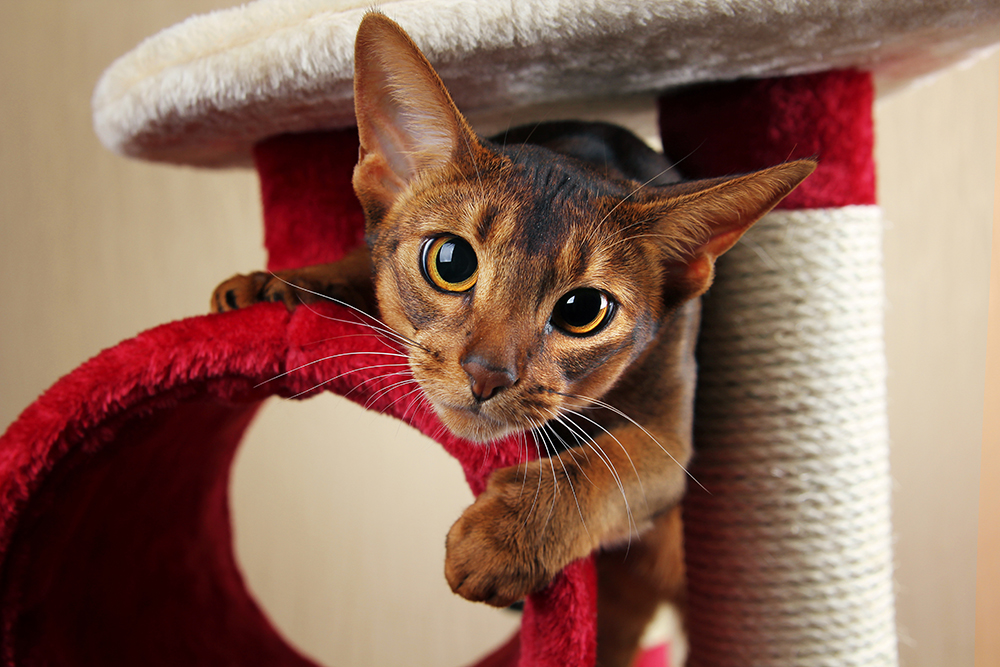It can be worrying if you suddenly start to notice that your cat is pacing. If this turns into a regular occurrence rather than a one-off, it can be a sign that everything isn’t quite right with your beloved cat. The first thing to do is to try and figure out why your cat may be pacing. We’ve listed common reasons for cat pacing and what to do about each one.

The 8 Reasons Why Your Cat Is Pacing
1. Stress or Anxiety
Cats are sensitive creatures, and there are many reasons that they can become stressed. If there have been changes to your routine, like moving to a new house, a new baby, or even another cat moving into the neighborhood, these can all cause your cat to feel stressed.
How You Can Help
Speak to your veterinarian, who may recommend anti-anxiety medication if your cat seems extremely affected. You can also use a pheromone plug-in to help your cat feel more secure and to reduce stress.
2. Hormones
If your cat hasn’t been spayed or neutered, pacing can be a sign that they’re ready to find a mate. If you’ve shut your female cat away for the duration of her heat cycle, she may start pacing in frustration that she can’t go outside. The same goes for unneutered male tomcats!
How You Can Help
If you don’t plan on using your cat as part of a breeding program, speak to your vet about getting them spayed or neutered. This will prevent unwanted pregnancies, as well as ease the hormones that cause your cat to pace in the first place.
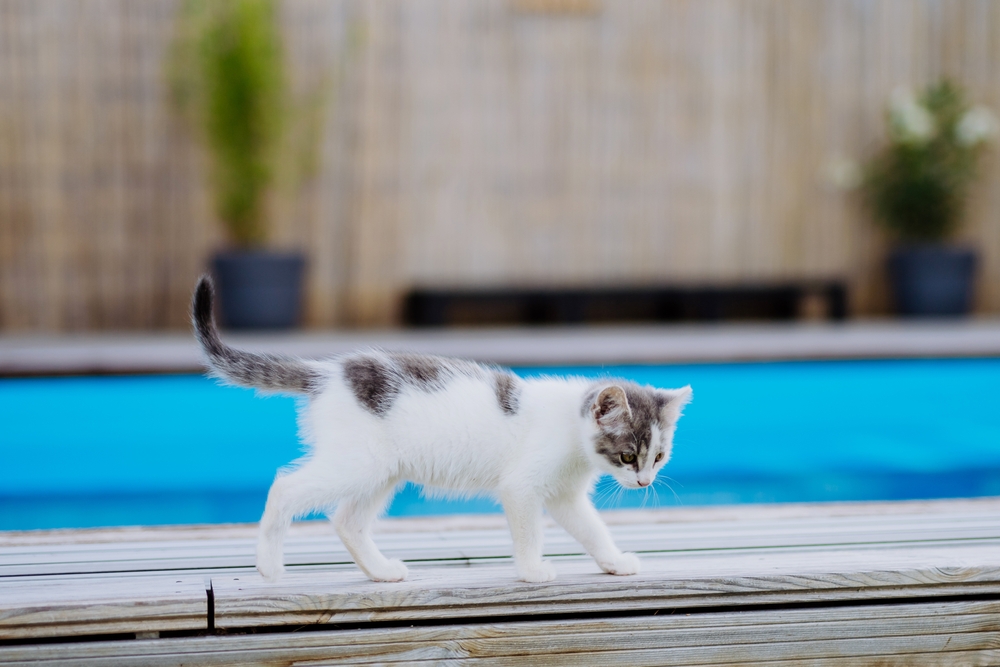
3. Your Female Cat Is Pregnant
Female cats often pace as they’re close to giving birth. See if your female cat is pacing but also eyeing up cozy spots in the house. If your female cat is not spayed and allowed outside to roam freely, it’s highly likely that she could be pregnant. Or maybe you already know that she’s expecting kittens!
How You Can Help
Schedule a veterinary consultation to confirm if your female cat is expecting kittens.
4. Poison
Sometimes a cat pacing and circling can be a sign that they have eaten something poisonous. If you also notice any convulsions, weakness, and lethargy, then check your house carefully to see if you can find anything your cat may have eaten. Certain houseplants and garden plants are toxic to cats.
How You Can Help
Speak to your veterinarian immediately if you suspect your cat ate something toxic.
If you need to speak with a vet but can't get to one, head over to PangoVet. It's an online service where you can talk to a vet online and get the advice you need for your pet — all at an affordable price!
5. Hypothyroidism
An overactive thyroid can lead to an increase in your cat’s metabolism. Your cat may be pacing, restless, and eating more than usual.
How You Can Help
Schedule an appointment so your veterinarian can run blood tests.
6. Pain
If your cat is in pain, they won’t feel relaxed enough to rest. Pacing can be a sign of pain in cats.
How You Can Help
Check to see if your cat has any obvious wounds, but to be on the safe side, make an appointment with your vet, as they may want to check for internal injuries as well.
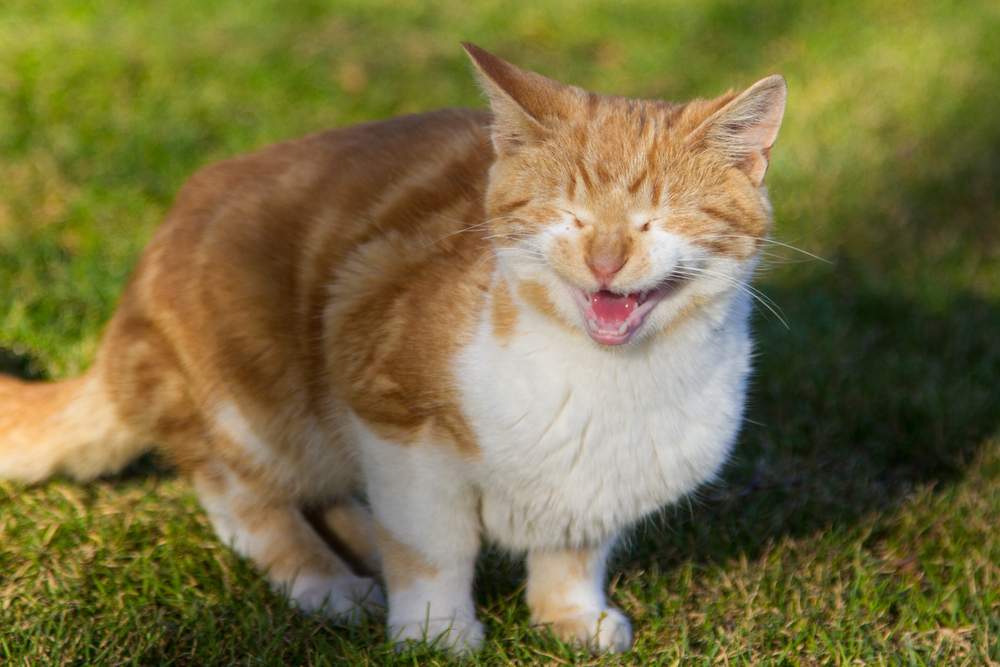
7. Boredom
If you used to let your cat outside at night but have started keeping them inside, they might simply be bored. Indoor cats can also get bored at night time. Cats are more active at dawn and dusk, so if your cat is pacing at those times, it might simply be that they’re ready for playtime.
How You Can Help
Make sure your cat has toys to play with or a food puzzle, or do sleep training to shift your cat’s schedule slightly.
8. Feline Dementia
If your older cat has started pacing, it may be a sign that they’re developing dementia. In this case, the pacing is often combined with your cat sitting and staring off into space, increased meowing, spending less time grooming, and seeking you out in an agitated manner.
How You Can Help
If you think your elderly cat’s pacing is a sign of dementia, speak to your veterinarian to find out what you can do to keep your cat comfortable. Drug therapies are available to consider.

Wrapping It Up
There’s no one-size-fits-all remedy for pacing in cats, but it’s important to figure out why your cat is pacing, and then you can figure out how to help them.
Cat pacing can be a sign of a serious medical condition or a reaction to being poisoned, so we’d always recommend seeking veterinary assistance. You may be able to solve your cat’s pacing simply by having them spayed or providing more enrichment for those early morning hours when they’re just bored!
See also:
- Why Do Cats Walk in Circles Before Lying Down? Facts & FAQ
- Can Cats Tell When You’re Sick? What Science Says
-
Why Is My Cat Suddenly Walking Like They’re Drunk? 10 Vet Approved Reasons
Featured Image Credit: Nils Jacobi, Shutterstock

